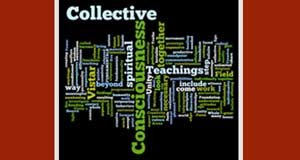
[dropcap]C[/dropcap]ollective when added to conscience sounds oxymoronic because conscience is individual and so is morality. The popular discourse about morality is however that something which conforms to the larger control group of a society, moral in such a case may not be rational but by all means for defining within the contours of the larger group is moral.
Democracy as we understand it is collective will and a game of numbers and in a homogenous population democracy is comparatively easier to handle. But all hell let loose when it comes to heterogeneous population and political islands pick and choose issues which can make them look better in terms of number support. This very populist tactic or myth is called “collective conscience”.
Populist approach to go up the ladder of power is not a recent phenomenon. Probably even the Greeks did that. In India, the world’s most culturally and politically diverse democracy, the Partition of India and Pakistan could be cited as an example of satisfying the collective conscience. Some people went to Pakistan because they wanted to and some remained in India because they wanted to.
The truth however lies somewhere in between and it was nothing but an unconscionable bargain of individual conscience. But populist politics weaved the myth so well into the minds of the existing citizenry that people collectively believed what they wanted to do. We fell for the myth and from it grew other brands and branches of “collective conscience”. Here are a few highlights.
It was in the 80’s when the controversy came up regarding the famous Shah Bano Case, collective conscience was satisfied through passing legislation. It was protecting the collective conscience of a religious entity (in reality only a few leaders of that religious denomination). Well at that time such collective conscience mattered because saving the chair was important. But interestingly enough it hurt the collective conscience of a religious majority ( did not even concern them remotely in any way) and the rest is history which culminated into something called the 1992 riots.
Socialist approaches recognize the variables in democracy and their different treatment hence something like Mandal Commission Report came up. But by this time we were so used to our collective conscience that we felt it did not suffice our collective conscience. Because after all the collective conscience of those in position of authority and power was larger than that of the marginalized. This trump card of marginalized however was used later on to fulfill some other unconscionable bargains in name of socialism however is quite another story.
When the Babri Masjid was desecrated it satisfied the collective conscience of a larger group of this multicultural democracy and minority sentiments never mattered. Why would it have mattered anyway because the ladder to the helm of affairs was ready and to nurture the minority sentiments at that time meant death knell to political ambitions and aspirations (of course of individuals) so finely built.
The Gujarat riots are where collective conscience bloomed fully which later culminates into showers of clean chits by SIT to all dealers and suppliers of collective conscience.
However, one thing is for sure. We do not let our collective conscience die. We have legislations like AFSPA (in spite of people like Irom Sharmila fighting against them) but probably their collective conscience is smaller than what constituted the collective conscience behind having AFSPA in the first place.
We have police atrocities against people like Soni Sori (only a name symbolic of all such victims); we have illegal arrests (particularly so for belonging to a certain religious denomination) and denying them compensatory benefits as well further. We have Khap Panchayats; we have media trials; we have the hanging of Afzal Guru on the one hand and pardon of Rajiv Gandhi assassins on the other.
The list is unending from a state law minister satisfying the collective conscience of a certain region to a political party sowing seeds of regionalism among otherwise innocent populace to anything as bizarre as social contractors (samaj ke thekedars) vandalizing stores and localities on Valentine’s day.
Collective conscience is a product which sells really well when there is information asymmetry. It is on discount too during elections. The political agenda is like those online stores selling something we don’t want by simply quoting its superficial benefits.
The point being right now is not to analyze where its genesis is but where it stops. So my take would be, if the individual conscience is in the right place, collective conscience is not needed. And to make sure collective conscience does not exist being informed is a prerequisite (being informed does not mean believing popular version of things!)